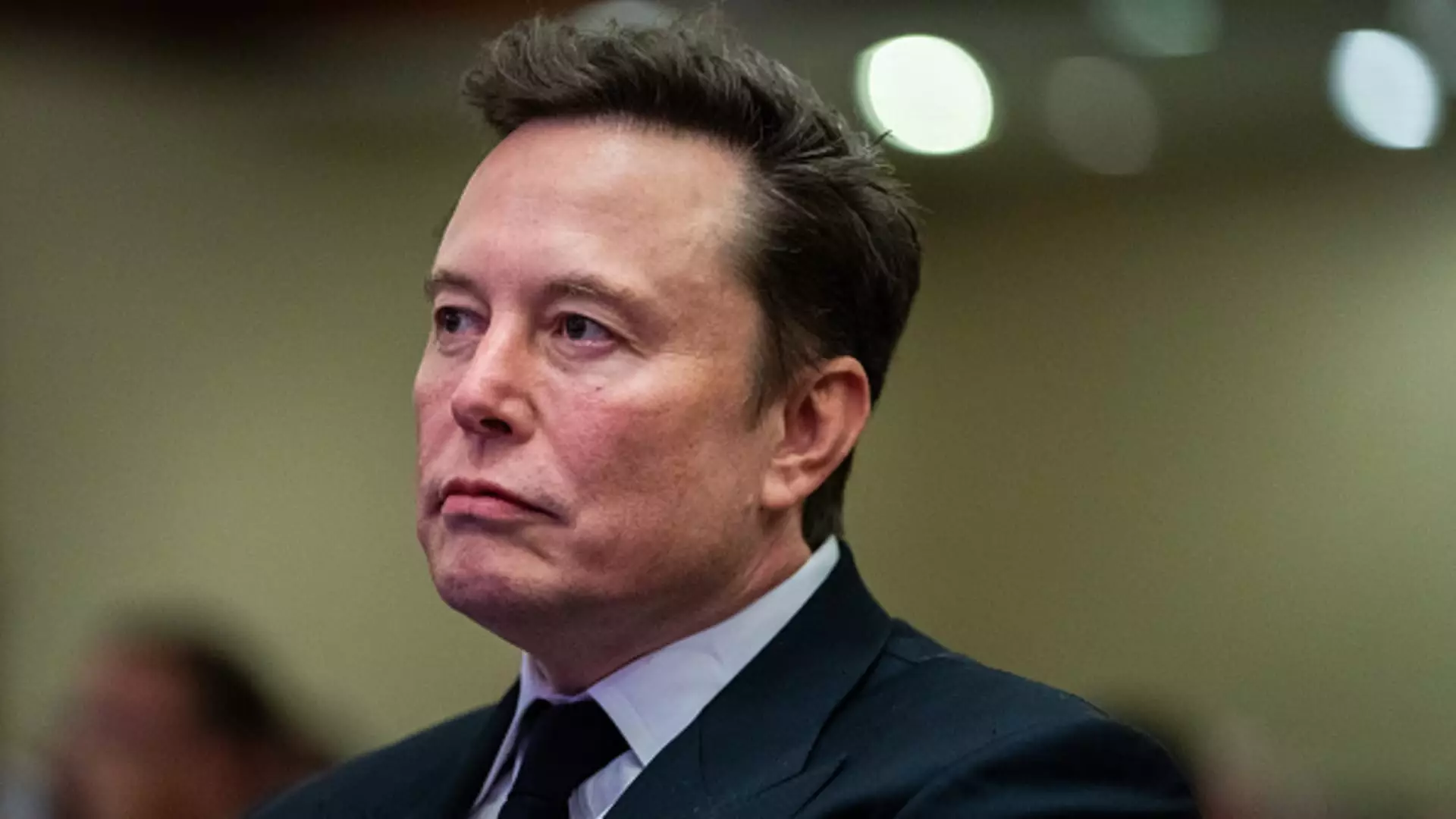Elon Musk, the polarizing CEO of Tesla Inc., recently found himself in the crosshairs of the legal system once again. In a ruling that raised eyebrows across the business sector, a Delaware judge reaffirmed the decision to void Musk’s colossal 2018 compensation package, which was pegged at a staggering $56 billion. This ruling marks a pivotal moment for both Musk and Tesla, highlighting the intricate and often contentious relationship between corporate governance and executive compensations.
Musk’s pay package, touted as the largest ever for a public company executive in the U.S., was initially celebrated as a brilliant move to align the interests of the CEO with those of shareholders. However, the intricacies of how the plan was granted soon came under scrutiny. In January, Chancellor Kathaleen McCormick voiced concerns over Musk’s overwhelming influence on Tesla’s board. Her ruling emphasized that the necessary frameworks for evaluating executive compensation were compromised. She asserted that Musk, in effect, dictated the terms of his compensation, skewing the negotiation process.
This critique lays bare an unflattering reality: internal checks and balances meant to prevent conflicts of interest may have faltered under Musk’s individual control. In this scenario, the corporation’s governance structure appeared weakened, raising important questions about accountability at the highest levels of business.
Following the court’s decision, Tesla sought a shareholder vote in June 2024 to “ratify” the 2018 pay package, as if to suggest that investor sentiment could somehow mitigate the flaws identified by the court. Musk’s legal team sought to leverage this vote to influence the court’s perspective on the issue. However, McCormick countered with an important legal principle, clarifying that manipulating post-hoc votes to alter prior judicial conclusions would lead to chaos. Such a deviation could create a precedent where losing parties could endlessly generate new narratives post-judgment, complicating the already intricate judicial landscape.
The refusal to condone this practice signals a commitment to maintaining a legal atmosphere grounded in the integrity of judicial decisions. Shareholder votes, while a critical aspect of corporate governance, are not a panacea for rectifying missteps in governance practices.
Financial Implications and Public Perception
Despite this legal setback, Musk’s financial situation remains enviable. The billionaire has seen a significant uptick in his net worth, boosted by a recent surge in Tesla’s stock price. Strikingly, his wealth soared by over $43 billion following Donald Trump’s recent election victory, reflecting a speculative optimism surrounding future policy landscapes favorable to Musk’s enterprises. This paradox reveals how public perception and market behaviors can diverge from legal outcomes.
Interestingly, while the ruling may have curtailed Musk’s formal compensation plan, the intrinsic value of his Tesla and SpaceX holdings continues to keep him firmly entrenched among the richest individuals in the world. As the tech mogul thrives, the complexities surrounding his compensation plan seem almost inconsequential against the backdrop of soaring stock prices, magnifying the chasm between legal outcomes and market realities.
Musk’s ongoing legal battles prompt deeper reflections on corporate governance ethics and standards. The necessity for strong governance becomes starkly evident, especially in high-stakes situations like Musk’s compensation plan. José de la Torre, a leading corporate governance expert, would argue this case illustrates the age-old need for boards to secure their independence to safeguard shareholders’ interests.
Musk’s affairs serve as a rich narrative replete with lessons for stakeholders, prompting both investors and aspiring executives to consider the implications of governance structures and ethical compliance in their decision-making processes.
As Tesla prepares to appeal the ruling, the landscape ahead remains dynamic. Musk’s journey reflects not only his personal narrative but also a broader dialogue on the responsibilities of corporate leadership in an ever-evolving business environment. How both he and his companies navigate these waters will undoubtedly serve as a critical case study for corporate governance in the years to come.

